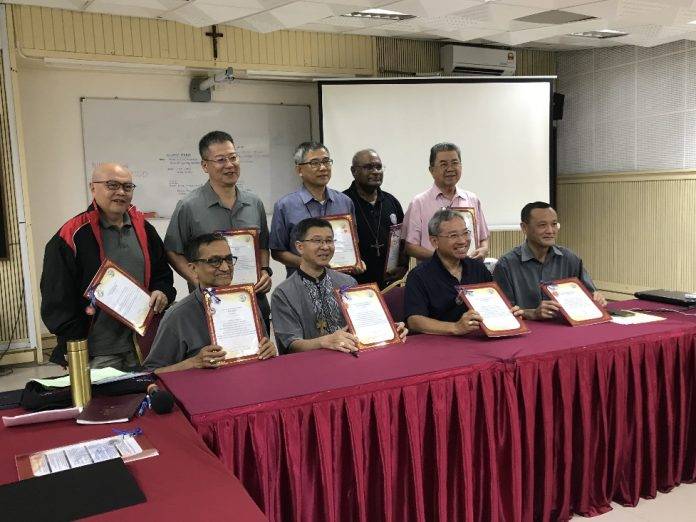Malaysian bishops pledge to create ‘ecological dioceses’

All nine bishops of Malaysia signed pledges to make their dioceses fully and genuinely ecological in perpetuity.
The prelates made a promise to live out “a deep ecological spirituality” and advance “ecological justice and resilience for all creation,” as indicated in the document they signed on July 13 at the Catholic Bishops Conference in MAJODI Centre, Plentong, Johore.
According to the Ecological Diocese Protocols, they also pledged to pursue decarbonized pathways and build community and Earth resilience.
The signed documents also contained self-monitoring forms and related documents that will prove helpful in every diocese and parish in making a swift and meaningful ecological transition.
With all Malaysian bishops uniting against this global emergency, the Episcopal Commission for Creation Justice of Malaysia, Singapore, and Brunei (ECCJ-MSB) expects every parish in the country to respond to the call by creating its own Creation Justice Ministries.
Bishop Joseph Hii, President of the ECCJ-MSB, said that the prelates’ pledges will boost the commission’s Protect Our Earth, Protect Our Children (PROTEC) Campaign.
Launched in 2020, this is the fourth year of the PROTEC Campaign, with the current year’s theme focused on ending plastic pollution.
Dr. Maria Lee, Head of the MAJODI Creation Justice Commission, was also present during the signing. She invited the Church to join their bishops in this ecological initiative by dedicating one Prayer of the Faithful at every Mass to the climate emergency.
She also encouraged every commission and ministry to swiftly respond to this social issue by incorporating climate action into their work.
For its next theme, the ECCJ-MSB’s PROTEC Campaign will be dedicated to cutting fuel consumption, in line with the commission’s ‘Decarbonizing Malaysia Project.’ This will be observed from September 1, 2023, to August 31, 2024. - Luke Godoy
Radio Veritas Asia (RVA), a media platform of the Catholic Church, aims to share Christ. RVA started in 1969 as a continental Catholic radio station to serve Asian countries in their respective local language, thus earning the tag “the Voice of Asian Christianity.” Responding to the emerging context, RVA embraced media platforms to connect with the global Asian audience via its 21 language websites and various social media platforms.














